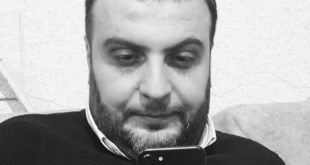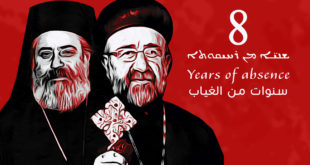ADO-World.org
DAMASCUS – The Syrian government and regime opponents blamed each other Wednesday for the murder of a nuclear engineer, the latest death among scientists in the flashpoint city of Homs.
Meanwhile, Western powers dropped calls for sanctions against Damascus at the UN Security Council in the face of veto threats from China and Russia, even as existing curbs began to affect Syria’s economy.
The Britain-based Syrian Observatory for Human Rights said "nuclear engineer Aws Abdel Karim Khalil was killed this morning (Wednesday) by unknown attackers."
State news agency SANA said Khalil was "shot in the head by a terrorist group as his wife was driving him to work" at the university.
In the same city, unidentified attackers killed Mohamed Ali Aqil, deputy rector of the architecture faculty at Al-Baath University, and Nael Dakhil, director of the military petrochemical school on Tuesday.
And on Sunday, a surgeon at Homs’ general hospital, Hassan Eid, was gunned down as he got into his car.
The authorities said the four were killed by "terrorists."
Al-Ghad, an alliance of anti-regime activists, accused the government of "killing the scientific figures in Homs."
Observatory chief Rami Abdel Rahman said "we firmly condemn the murder of these four persons close to the regime," and a statement from the group called on "everyone to denounce and stop extremists from committing such acts of violence."
Activists say Khalil and Eid belonged to the Alawite sect of Islam to which President Bashar al-Assad also belongs, while Aqil was a Shiite Muslim and Dakhil a Christian.
Al-Ghad highlighted the "responsibility of the regime for Syrian blood that is flowing, and which has failed to provoke confessional discord in Homs and is again trying to arouse it by targeting these scientific personalities."
Meanwhile, the Observatory said three deserting soldiers were killed and an officer died of wounds sustained in fighting between loyalist and dissident troops in Rastan, near Homs.
Shooting could still be heard there, while security forces assaulted Homs’ Al-Nazihine neighbourhood.
And a new draft resolution drawn up by Britain, France, Germany and Portugal, with US backing threatens to adopt UN sanctions if the deadly crackdown by Syrian forces on anti-regime protesters does not end.
The formulation was aimed at overcoming opposition from Russia and China, which have threatened to veto any sanctions resolution brought to the Security Council, which has so far only agreed one statement on the crackdown since it began in March.
"There is a need for a strong Security Council response to the repression," said one European diplomat explaining the resolution.
"There are hopes that this resolution can quickly get a majority in favour on the council," said a diplomat from a second council member.
In the past week, the European Union has tightened the screws on President Bashar al-Assad’s regime, banning new investments in Syria’s oil sector at home and abroad, and prohibiting delivery of bank notes to the central bank.
The latest measures marked a seventh round of EU sanctions on Damascus for its refusal to halt a brutal crackdown on protest in which the United Nations says 2,700 people have already been killed.
Washington has imposed three sets of punitive measures on top regime officials, and President Barack Obama has called on Assad to step down.
The measures are already having an effect.
The Damascus government surprised the world on Thursday by announcing the temporary suspension of imports of products subject to tariffs of more than five percent.
The curbs have sent prices of cars, furniture, clothes, household appliances and certain foodstuffs rocketing, with consumers complaining they will have to make do with locally produced goods.
Syrian central bank governor Adib Mayaleh said the import restrictions would save Syria $6 billion (4.4 billion euros) annually.
The unrest rocking the country has slowed economic activity, with analysts predicting negative economic growth in 2011 as a result of a decline in tourism and investment.
In other developments, Human Rights Watch denounced the murder of an 18-year-old woman whose mutilated body was found by her mother in a mortuary last week.
"Syrian security forces either killed and mutilated Zeinab al-Hosni or are turning a blind eye to gangs committing gruesome murders against anti-government activists and their families," said Joe Stork, HRW’s deputy director for the Middle East.
"As long as those who killed and mutilated Zaynab al-Hosni operate in total impunity, the horror show that is Syria today will continue unabated," Stork said.
 Assyrian Democratic Organization ADO
Assyrian Democratic Organization ADO






